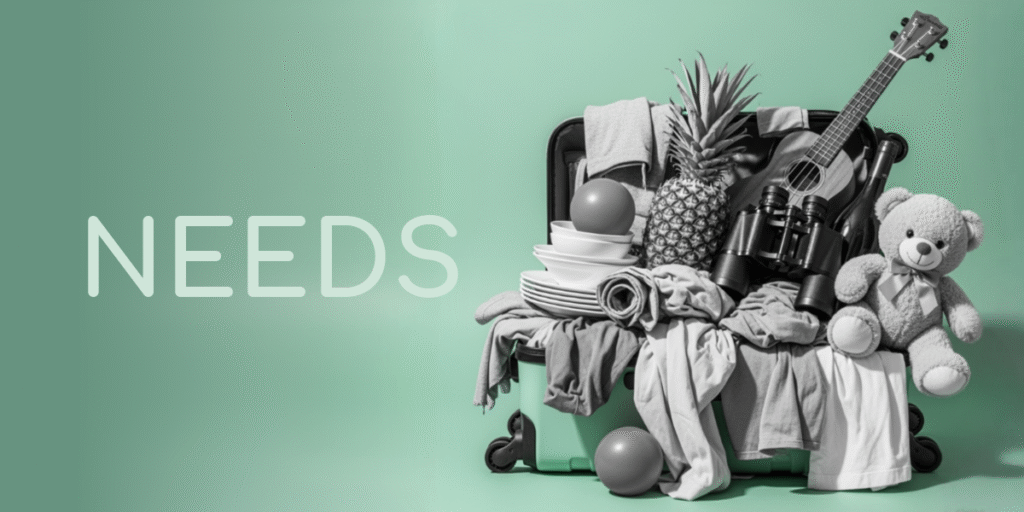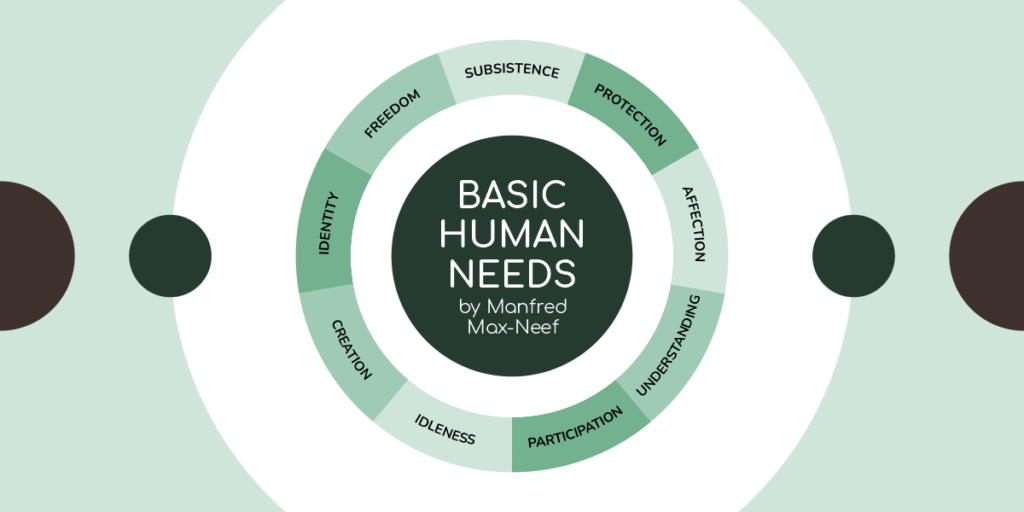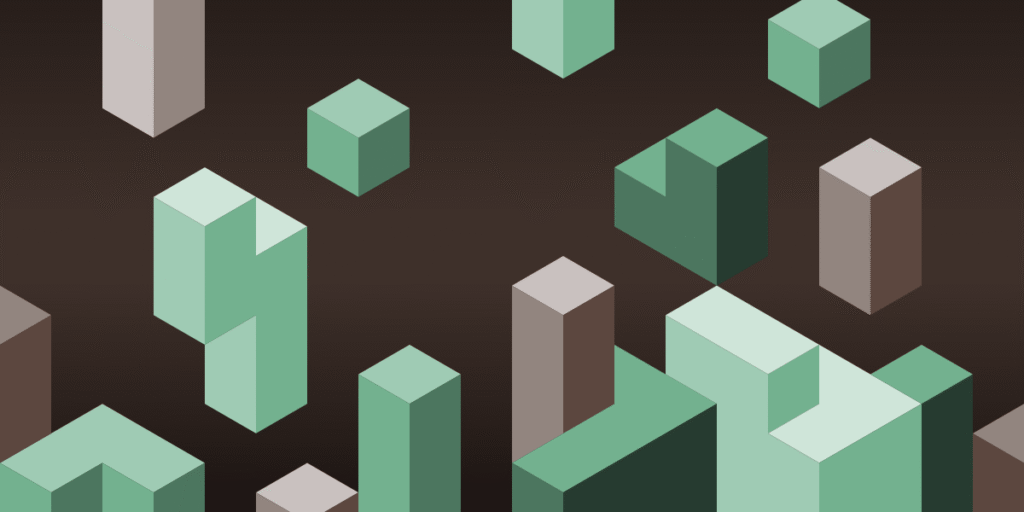When I was a child my mom would pack half the household for a short trip. She said you never know what you will need. Did we really need a twelve piece dining set when staying at a hotel? Probably not, but it made her feel safer. That was her way of answering a need, and it shows how basic human needs can vary from person to person and from moment to moment.

The Foundation of Human Needs
What defines being human has been studied from many angles. Abraham Maslow suggested a pyramid of needs, beginning with food, water, shelter and rest, then moving to safety, belonging, esteem and finally self-actualization. His model is easy to understand and still widely used. Yet life is often less ordered. People may create, connect or take risks even when some basics are missing.
Another important framework comes from Manfred Max-Neef. He described nine fundamental human needs that are universal: subsistence, protection, affection, understanding, participation, idleness, creation, identity and freedom. What changes through history and culture are not the needs themselves but the ways we try to satisfy them.
Psychology adds a more focused view through Self Determination Theory. It highlights three essential psychological needs: autonomy, competence and relatedness. Autonomy means feeling free to make choices. Competence means feeling capable and effective. Relatedness means feeling connected to others. When these needs are supported, people are more motivated, creative and resilient.
Maslow gives us a simple ladder of needs. Self Determination Theory highlights psychological growth. Yet for Domovago the most useful approach is Manfred Max-Neef’s model. His nine fundamental needs are universal and constant, but the ways we satisfy them can change. This idea of flexible satisfiers inspires the vision of a modular home, able to adapt to different people and different moments of life.

Human Needs and Domovago
Subsistence
Humans need food, water, shelter and health. Without these, life cannot continue. Domovago will exist first as a mobile shelter. The project also explores ways to harvest water and energy from the environment, so that the essentials of life remain within reach.
Protection
People seek safety and stability, yet stability can be fragile. A mobile solution can feel safer because it keeps the option to move before conditions turn unsafe. Domovago will be designed to be road legal and resilient. It will protect from weather and circumstance while avoiding the heavy roots that make leaving hard when danger appears.
Affection
Love and care are at the heart of human experience. A home feels warm not because of walls but because of the people who shape it. By creating a modular and flexible solution, Domovago will allow every resident to personalize the atmosphere and tailor the space to the feeling they want to carry with them, whether it is intimacy, playfulness or calm.
Understanding
Humans have an endless drive to learn, yet some knowledge is essential for survival. Not everyone needs to know how a mobile phone works, but everyone should understand what keeps them warm in winter and what keeps water clean to drink. These things do not appear by magic, they are part of our habitat and we must know them. Domovago will be built with this in mind. Open knowledge and the right to repair will guide the design so that people can understand their home, maintain it, and even improve it with their own hands.
Participation
Being part of community and society gives life meaning, yet solitude can be just as necessary. Connection and retreat are both part of the human story. Domovago will make this balance possible. It will allow people to join local networks and events wherever they go, while also keeping the choice to step back, close the door, and enjoy the quiet of their own space.
Idleness
Rest and play are not luxuries, they are part of what makes us whole. Humans need time to pause, to dream and to simply do nothing. Domovago will respect this need by creating space that welcomes both leisure and rest, reminding us that slowing down is as vital as moving forward.
Creation
Humans are makers by nature. To imagine, to build and to express is as essential as eating or resting. When people shape something new they also shape themselves. Domovago will respond to this need as a community driven project where ideas can be shared and developed together. Modules will be designed as open source elements so they can be adapted, modified and improved by the people who use them. In this way creation becomes not only personal but collective.
Identity
Every person seeks a sense of self and belonging. Home is never only a roof, it is a mirror of who we are and where we feel connected. Domovago will support this need by allowing each person to express their identity through the form and character of their living space. At the same time, being part of a community of creators and travelers will strengthen that sense of belonging, weaving individual stories into a larger shared vision.
Freedom
At the core, humans long for autonomy. To choose where to live, how to live, and when to move is part of what makes life meaningful. Domovago will embody this need for freedom by giving people the possibility to carry their home with them, to stay when they wish, and to move when they must.

Shaping What Comes Next
Human needs are many and they are constant. From subsistence to freedom they shape the way we live, the way we create, and the way we connect. What changes through time is the way we answer them.
Domovago is being imagined as one of those answers. By looking at our needs as a whole we can see that a habitat must remain flexible if it is to serve us well. The modular path offers such flexibility, making it possible to adapt to different moments of life and to different people.
This article is only the beginning. The journey continues by turning needs into rules and into shapes that can move on real roads.
Key Takeaways
- Universal Needs: From subsistence to freedom, basic human needs shape every life.
- Changing Answers: Needs stay the same but the ways we satisfy them shift across time and place.
- Flexible Habitats: To meet all needs, living spaces must adapt, and Domovago aims to do just that.
Credits
- Written by: DB
- Images: DB, Freepik